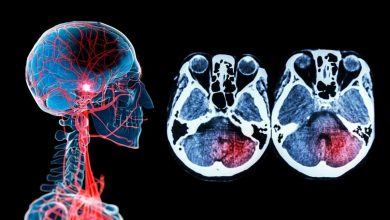8 Challenges Nurses Face With Technology in a Digitally Advanced World

The use of information computer technologies is rapidly increasing in healthcare settings. Digital technology is also influencing nursing practice. Nurses in the workforce are expected to understand and utilize digital technology to improve their care services.
Nurses used to directly contact and deal with their patients. However, technological advancements have made patient care more efficient by providing patients and care providers with a way to communicate anytime from anywhere in the world. Moreover, patients can also access their health information like lab reports, treatment suggestions, and more through their phones or computers.
The new generation of nurses is educated and trained to handle the latest technology. However, nurses already in practice are rarely trained to update their technological skills. Therefore, nurses in the workforce often can’t keep up with the digital advances. They may pursue advanced degrees in nursing to improve their skills. Full-time working nurses can pursue an on-campus or online MSN degree to advance their careers. Advanced degrees prepare nurses for various challenges they may face during their jobs. However, there are specific challenges related to technology that nurses may still face on-job. Let’s discuss them in detail.
Aggravated Malpractice Claims
Technology has introduced ease but, it also has complicated several simple processes. Many medical devices use advanced software that needs to be updated regularly. Updating medical equipment is not as straightforward as updating computers. If nurses aren’t adequately trained to operate them or don’t properly manage these updates, they compromise patient care, leading to medical negligence resulting in malpractice claims. Using medical technology without comprehensive understanding can lead to practitioner error.
Technologically challenged nurses who can’t operate new software to do a basic task like entering a patient’s medical records may make mistakes, risking the patient’s life and leading to malpractice claims.
Introduction of Robotics
Workforce shortage and a growing older population require high-quality care providers. Humans are failing to meet this demand hence, robotics is becoming an emerging field in the healthcare settings. Nurses are viewing the rampant use of digital technology as a threat to their jobs. However, robots don’t have empathy which is a crucial skill in nursing hence, can’t entirely replace the human experience. Moreover, research hasn’t proved that robots are better at providing quality patient care.
New nurse students are being trained through robots. Realistic robots programmed to cry, speak and throw a fit are employed in nursing practice to train students for real-world situations. However, robots are devoid of emotions, and nursing leadership believes that this is not an effective way to educate future nurses. Therefore, it is a new challenge for nurse leaders to ensure adequate training of nurses with real human experiences.
Challenges in Telehealth
Telehealth is a useful technology that helps nurses provide care services remotely. However, it can be challenging for nurses. Insufficient access to the internet can make it frustrating for nurses, and chances of miscommunication also increase. Moreover, the difference in medical licensure required by different states also limits the potential of competent nurses.
Lack of Training
The healthcare industry is rapidly evolving, and digital advances are the primary cause of this evolution. However, nurses are not being trained to keep up with these advances. Therefore, it is a common occurrence that they may not understand or be able to operate a new digitally advanced equipment. The nursing curriculum also hasn’t been updated to include technological advancements. Digital literacy is crucial for nursing practice nowadays. However, no measures are being taken to realign nursing education to keep up with the modern digital evolution.
Keeping Up with Old Technology
New technologies are taking center space but, there are certain hospitals and healthcare settings that still utilize outdated systems. It can create a clash between older and newer generation nurses. As nurses employed at such hospitals may not understand the older technology and may have to learn them all over again. Whereas the older generation of nurses may not be willing to adopt the new technology by giving up the older ways.
Complicated User Interfaces
Even though the technology is progressing at the speed of light, user interfaces are not improving. Most medical pieces of equipment have unfriendly user interfaces that display too much-unwanted information at once. It can be challenging for nurses to deduce the required information quickly in case of an emergency. Difficult to navigate interfaces can also create problems for nurses especially, the older generation of nurses.
Complicated Patient Information Tracking
Electronic health records can be a blessing or a curse. A barcode or tracking chip can enable nurses to access patient history easily. However, poorly designed systems can hinder the work of nurses resulting in stress, frustration, and increased chances of technology burnout for them.
Immediate and Wide Ranged Technology Implementation
Medical systems are being updated with newer technologies, and the change is rapid and widespread. Nurses can hardly keep up with this immediate and broad technology implementation because of a lack of time, available resources, and other barriers.
The Wrap Up
Technological advancements, no doubt, have created ease for all healthcare workers. However, nurses face several challenges in this digitally advanced world. Nurse education hasn’t been updated to keep up with the evolving healthcare industry.
Moreover, nurses are often not trained to be technologically literate, which can create problems for them during their job. Their tech illiteracy can cause mistakes which can result in increased malpractice claims. Rampant use of technology threatens the jobs of the nursing workforce that can frustrate them. Moreover, some hospitals may not use newer technology so, nurses have to keep up with older technology as well to be able to work in any healthcare setting. Remote healthcare is an effective and efficient technology but, miscommunication especially, with older patients can lead to unwanted stress. This article covers the various technological challenges nurses may face in the digitally advanced world. However, the proper measure should be taken to resolve these issues to accommodate nurses and ensure top-quality patient care.




